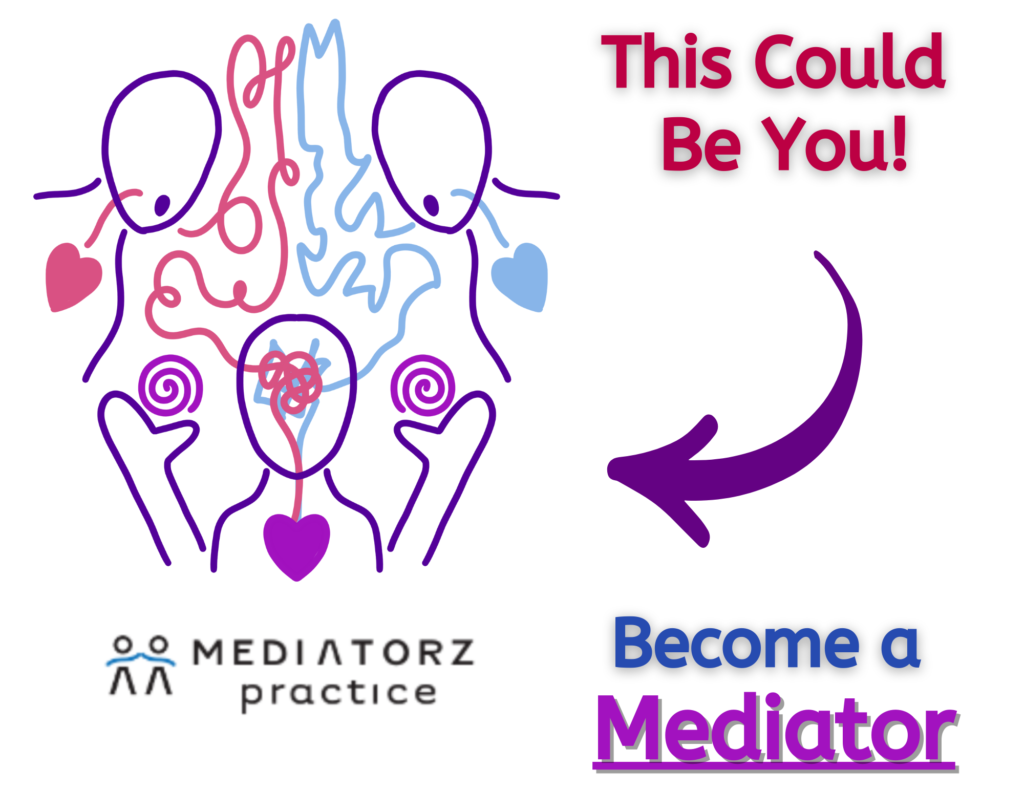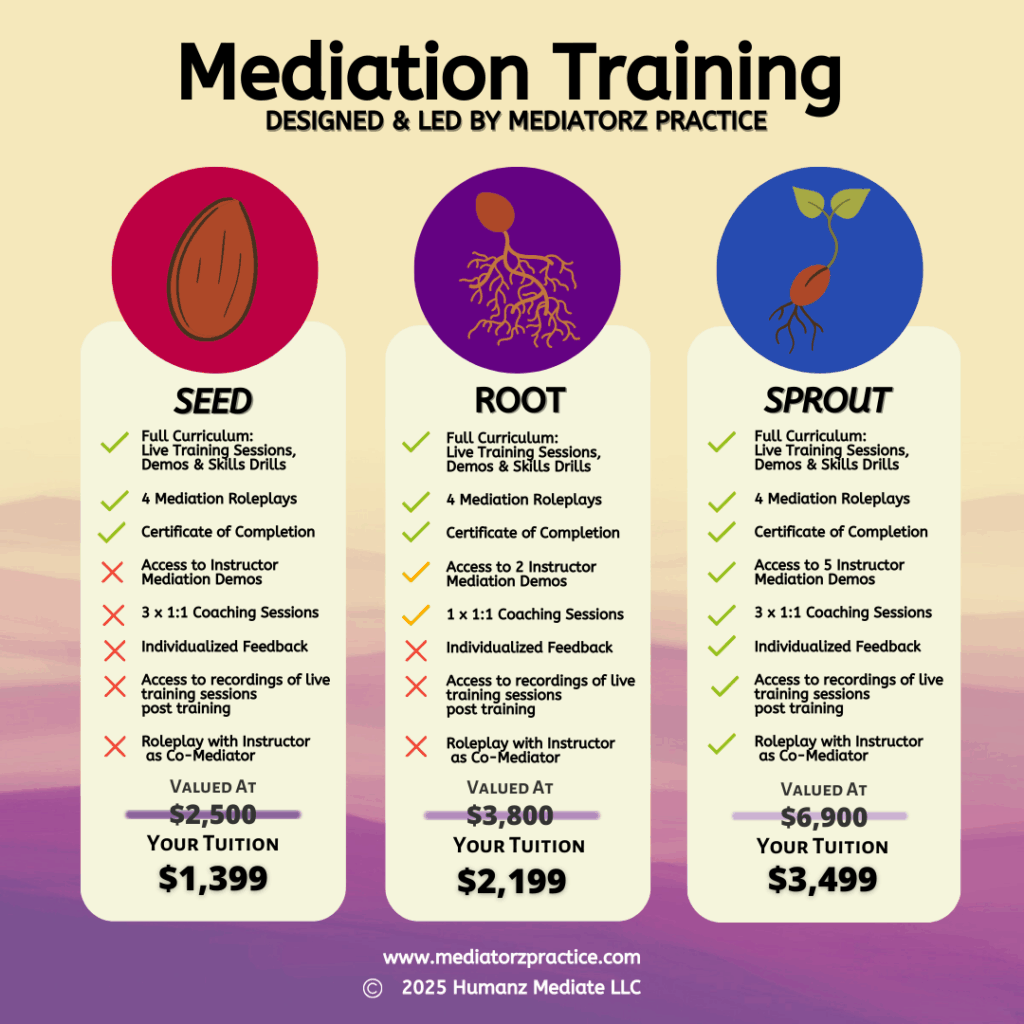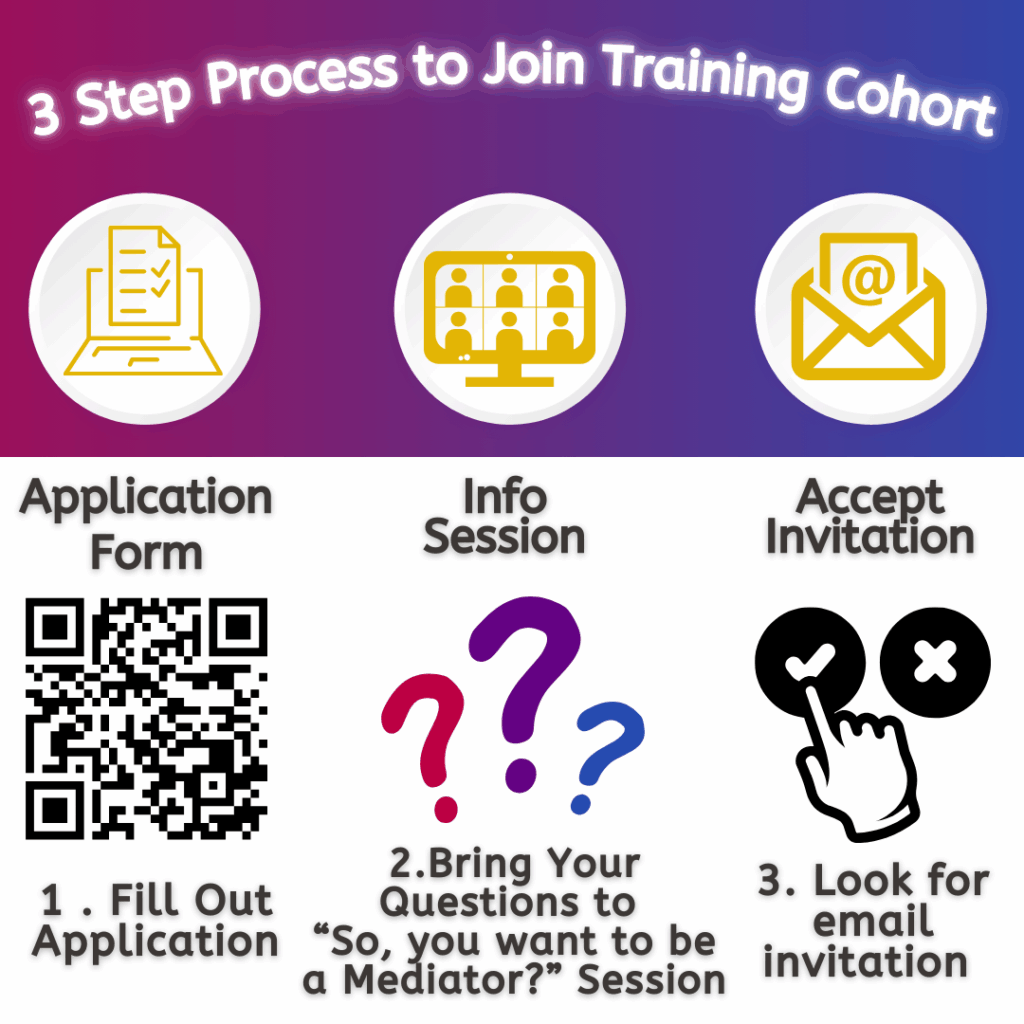Role plays are one of the most powerful components of mediation training, providing the closest simulation to real mediation. They are essential for practicing skills and understanding what mediation feels like from the participant’s perspective.
Here’s how role plays work:
Two Roles: Mediator & Role Player
Role Players: Act as participants, using a provided character, scenario, and script to start, but then improvise the rest.
Co-mediators: Practice mediation in real-time, applying the skills they’ve learned. This is where the muscle memory is built.
Our Unique Approach:
We offer four role plays in total. Two are done in the middle of training, and two are done at the end, allowing you to see your progress.
Each role play is a full simulation, with three hours of practice:
30 minutes of pre-mediation (planning with your co-mediator).
Two hours of actual mediation (the best practice time for learning).
30 minutes of post-mediation feedback (from role players, co-mediator, and instructor).
Feedback & Reflection:
The feedback loop is key! You’ll get feedback from everyone: role players, co-mediator, instructor, and even self-reflection. This extensive feedback helps refine your skills and increase confidence.
Learning Value:
Role plays give you the experience of real mediation without the pressure of a live case. It’s about getting repetition, building skills, and learning how to manage real-time situations.
In short, role plays are invaluable. They are the best way to practice mediation, simulate realistic scenarios, and get the feedback needed to improve your skills.





